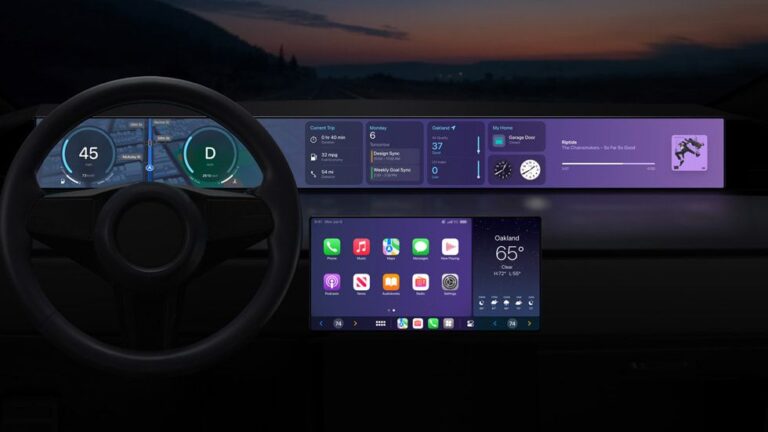The spring has gone from the Apple Watch’s bungee.
- Apple held its “Spring Forward” event last night where the only spring was in its name.
- The event was aimed at giving more details around why users would want to but an Apple watch in in that regard Apple has failed to answer the question.
- The device will come at $349 for the sport edition and go all the way up to $17,000 for the solid gold version.
- There already are, and will be many more, third party apps for the Apple Watch but none of them is really anything more than extensions of what already exists in the iPhone.
- These apps have been redesigned to work on the much smaller screen, but in essence, all of them are little more than remote controls for the iPhone.
- This fact was also prevalent at Mobile World Congress where even enterprises are asking their suppliers about third party apps and software support but none of them seem to really know why.
- I had crossed my fingers that Apple had spent the last 6 months working out a new and innovative way to use a watch to enrich the life of users but it has not.
- This is what is missing from the whole wearables industry: it remains a solution looking for a problem.
- Consequently, I think that Apple will outsell all other wearables but it will do so on its brand and fan base alone.
- One of the biggest problems with the Apple Watch is its shape.
- 85% of all watches sold are round, and in that regard the some of the offerings on Android wear make better and more fashionable watch replacements in my view.
- Apple also launched a new MacBook Air that it hailed as the “the future of the notebook” but in that regard to it has also failed.
- The device is underpowered and overpriced although it is even thinner and lighter than its predecessor.
- It seems that Apple, like Microsoft’s marketing department, has also completely missed the fact that the laptop form factor is now obsolete.
- A 12inch iPad with optimisation for office apps, a detachable keyboard and mouse that all click together would be a terrifying development for Microsoft but this will not keep it up at night.
- The net result is that this event has succeeded in drumming up hype and excitement around this new product category but it is still missing the spark that will make it a huge volume seller.
- Consequently, I can’t see this lifting Apple’s numbers significantly and still prefer the likes of Microsoft and Google for 2015.









Blog Comments
Samanjj
March 10, 2015 at 12:21 pm
Most of what you say is spot on. Esp. the challenger to the surface. Though you Really had to say fan base? After all these years of growth against industry trends and beyond any original apple fan base, you’re wheeling out that troupe? They sold 70 something million iPhones last quarter. Do you think a cult following does that? Or have the most profitable quarter of any public company ever? This part of your analysis is lazy.
windsorr
March 10, 2015 at 4:07 pm
The iPhone changed the way people used smartphones and offered people a meaningful enhancement to their lives. This offers nothing more mildly amusing gimmick. That is why the iPhone sold those volumes and not due to anything else. Any comparisons directly of the Watch to the iPhone is lazy analysis in my view.
Samanjj
March 10, 2015 at 4:21 pm
When the iPhone went on sale people used the fan base argument when sales were good. You missed my point to throw my comment back on me. If the watch is successful it’s not due to any cult following or fan base. Apple has not relied on those for a very very long time.
186k
March 10, 2015 at 2:46 pm
Can a form factor that sells well over 100m pa really be described as obsolete?
windsorr
March 10, 2015 at 4:08 pm
It is when the form factor exists simply because the guts of the computer had to be put under the key board which is no longer required. The market will take to realise this but I think that the laptop will not exist in a few years time.
Tim Nash
March 10, 2015 at 2:51 pm
The more times iPhone users pull it out of a pocket or bag to see if they want to or need to respond, or use for example Apple Pay, the more worthwhile it will be to buy an Apple watch. There are also times, like when driving, that glancing at a watch gives you what you want to know without being a distraction.
While I agree, Apple Watch won’t move the revenue needle this year; within 3 years it will make as much as iPad does now.
windsorr
March 10, 2015 at 4:10 pm
Only if it adds the kind of utility that the iPhone added compared to Symbian. At the moment, I see nothing that does that above simple convenience and fan boy purchasing.
When that use case reveals itself I will be the biggest bull of this device but until then the huge numbers people are forecasting are likely to be bull.
Samanjj
March 10, 2015 at 4:23 pm
Fan boy purchasing. Oh sigh. If you used that comment with any other company I would assume that is your style of writing. I don’t recall that though.
Tim Nash
March 10, 2015 at 4:46 pm
Simple convenience alone will make Apple Watch a good seller. Detractors will call it laziness but users won’t care, if they feel Apple Watch makes their life easier.
windsorr
March 12, 2015 at 1:18 pm
Thats the whole point. it wont. in fact it will make it more complicated as they have to keep taking it off the charge it.
Tim Nash
March 12, 2015 at 2:44 pm
Simple convenience depends on how many times it saves you having to take out the iPhone and whether the battery lasts for the waking day.
If, as Tim Cook said, the battery will last for 18 hours, then many, if not most, will want to take the watch off so they can sleep without interruption. The watch can then recharge overnight, next to the iPhone.
Tatilsever
March 11, 2015 at 4:19 am
> “85% of all watches sold are round”
That is not a good reason to stick with that form factor at all. There is no rotating elements to display the clock hands that makes the “corners” useless and displaying information begs for a squarish shape.
>”…make better and more fashionable…”
Design is not how it looks, it is how it works. “Yeah, you cannot read half your text message with one glance, but hey it is round, ain’t it great?”
Tatilsever
March 11, 2015 at 4:33 am
>”The device is underpowered and overpriced although it is even thinner and
> lighter than its predecessor.”
Too underpowered to accomplish which task?
Overpriced compared to which alternative? Which aspect are users expected to give up with that alternative? Weight? Screen resolution? Battery life? OS? Track pad?
How is this criticism any different than the points made against the original Macbook Air? I see imitations of it from numerous companies all around.
>”A 12inch iPad with optimisation for office apps, a detachable keyboard and mouse that all click together would be a terrifying development for Microsoft but this will not keep it up at night.”
On the other hand, one of the biggest complaints from iPad owners I know was its weight until Air version arrived. A 12” version would be “too heavy” to comfortably hold like a tablet for extended periods. (Glass would be 44% heavier, would require a bigger battery and the backside is not going to get any lighter either.) If it is going to be used like a laptop propped up against a desk or lap due its weight, it might as well be a real laptop.
Of course, Apple could have copied the Surface Pro idea instead and target an annual market of few million at discounted prices instead.
Colin
March 11, 2015 at 4:32 pm
What Apple and its customers understand, and RFM appears not to, is that Apple is creating a different future. It isn’t about Windows vs Mac , iOS vs Android vs Microsoft, Apple vs Google/Samsung and so on. It’s about creating new experiences for customers.
New experiences change the rules and invalidate the old ones. Microprocessors dethroned IBM. Unbundling hardware and software dethroned nearly everyone except Microsoft. The internet dethroned Microsoft. It’s the customer experience of new technologies, new business models, new services and new products that makes the difference and Apple has a game changing advantage in creating new customer experiences.
Apple makes the whole experience, not just the whole widget. Nobody comes close to Apple in this. As Apple moves on to design its own high-performance key components, other companies face an ever higher entry barrier in trying to make their own versions of the products.
The new experience that Apple is creating is a well integrated digital lifestyle that functions across several different types of devices, communications environments, personal circumstances, activities and support services (transport, travel, banking, healthcare, work, etc.). How well Apple and other companies do this is the criterion for future success.
The trouble with RFM is that it behaves like retired generals, endlessly re-fighting the last war in the hope of understanding the next one. The specification of a Samsung phone doesn’t matter. Ecosystems don’t matter unless everything else is right. Microsoft’s attempts to re-invent the iPad as a Windows device don’t matter. Nobody cares. Google’s attempt to extend its search/ advertising business to mobile devices via Android does matter, but only because they’re abusing people’s privacy on a gigantic scale.
In article after article, RFM writes up the latest on Apple, Microsoft and the Android world and then adds a sentence at the end along the lines of “Apple may be OK for a quick buck but for the long term Microsoft and Google are a better bet”. That’s a gross misjudgement that could cost its customers dearly. It appears to be based on comparisons between phones, between ecosystems and between companies. It ignores the only comparison that matters, between customer experiences of the integrated whole.
So please wake up RFM. It’s a shame to see your hard work falling so far short of what it should deliver.